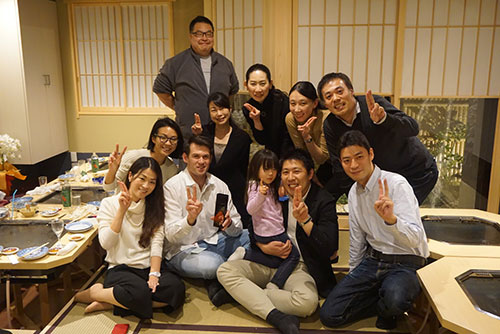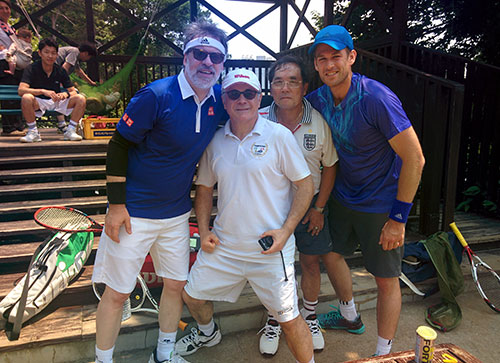
フルブライトストーリー
No.4 スコット・ウィルバー

American Zombie Hunter in Japan




Scott Wilbur came to Japan to study zombies. But don't think of the brain-craving creatures of cinematic fantasy. What piqued the interest of the PhD student from the University of Southern California are the corporate variety — profitless firms in the world's third-largest economy that are ultimately kept afloat by forbearance lending and government support.
“These are companies that could be considered virtually bankrupt,” he said. “And the banks continue to lend to them because the government guarantees the loans.”
While the term “zombie corporation” gained prominence in Japan in the previous decade — perhaps exemplified by supermarket giant Daiei's amassing of billions of dollars of debt before eventually being absorbed by a competitor — Wilbur's focus is on small- and medium-sized enterprises with a few hundred employees. These are widely seen as the backbone of Japan's economy.
Since arriving at Tokyo's Waseda University in September 2015, he's been meeting with bankers, bureaucrats, politicians and professors to learn about how Japan's credit-guarantee system helps prop up small businesses.
“It does support a social fabric,” he said. “But there are also potentially serious consequences for the economy.”
Wilbur, who is fluent in Chinese as well as Japanese, says researchers in China are taking a keen interest in the zombie problem among Japanese firms — and they view it as a cautionary tale.
“It's something they definitely want to avoid,” he said.
He also hopes there may be something U.S. bankers and economists can learn from the study he and his Japanese colleagues have done on the subject. That desire to foster mutual understanding between the two countries started — albeit on a smaller scale — on the baseball fields of Irvine, California, where Wilbur grew up.
That's where, as a teenager, he made his first Japanese friends. His first trip to Japan was at age 20. He also translated a book on politics into English from Japanese before setting his sights on Taiwan. There, he studied for four years at National Taiwan University, doing all of his course work in Chinese.
But Wilbur says it was during his undergrad years at Georgetown University that he first felt pushed to seek a greater understanding of the world beyond home. It was from the campus in the nation's capital that he witnessed the smoke rising from the Pentagon in the wake of the Sept. 11 attacks.
“I remember thinking there must be something we missed,” he said. “I wanted to be more informed about the wider world.”
Nurturing that understanding is how, he says, he's been trying to help fulfill the vision of Senator Fulbright.
“He set a very high bar,” Wilbur said, recalling how Fulbright, as a freshman in Congress, first proposed his scholarship program mere weeks after the Second World War ended.
Despite his busy schedule, Wilbur has found some time to pursue his non-academic passions while in Japan. An avid tennis player, he joined a local club and competed in an international tournament in Yokohama. And his interest in traditional pottery has taken him to Mashiko, north of Tokyo, and to the prefectures of Ehime and Saga in Japan's southwest.
He also gave his time to teach some college and high school students in western Tokyo about America's sometimes tumultuous presidential electoral process.
"It was interesting to talk about that, since it differs substantially from the method for selecting the prime minister in Japan," he said.
The students got an overview that included the primaries, party conventions, debates and the electoral college.
“They also simulated the election by devising their own campaign slogans,” said Wilbur, who explained to them the dynamics behind the actual slogans “Stronger together” and “Make America great again."
But, Wilbur says, he often worried that what would seem to most a very full diet of academic research and social interaction with his Japanese colleagues wasn't enough.
“It's great to have the opportunity to be here to pursue my research,” he said. “But then I think back to what Senator Fulbright was trying to achieve and I feel I should be trying to find ways to promote understanding. You can't relax.”
